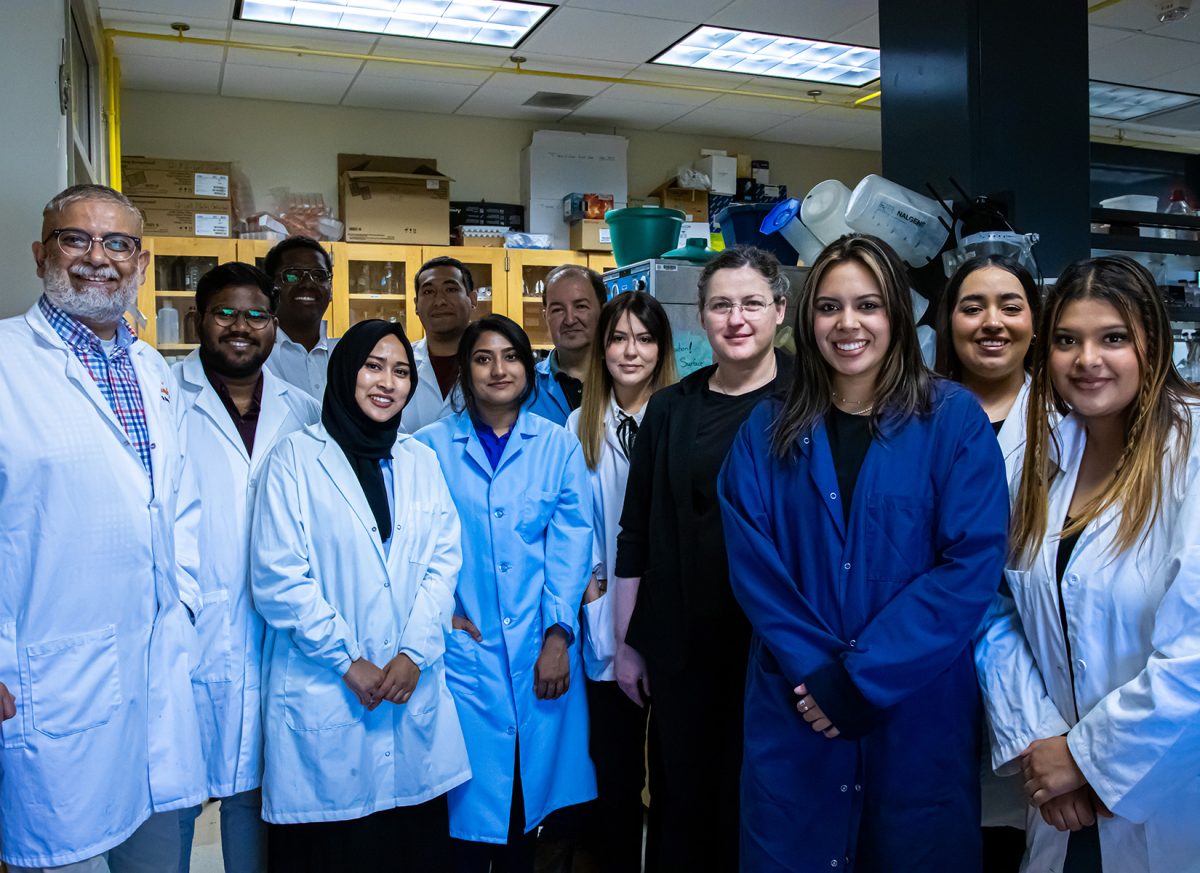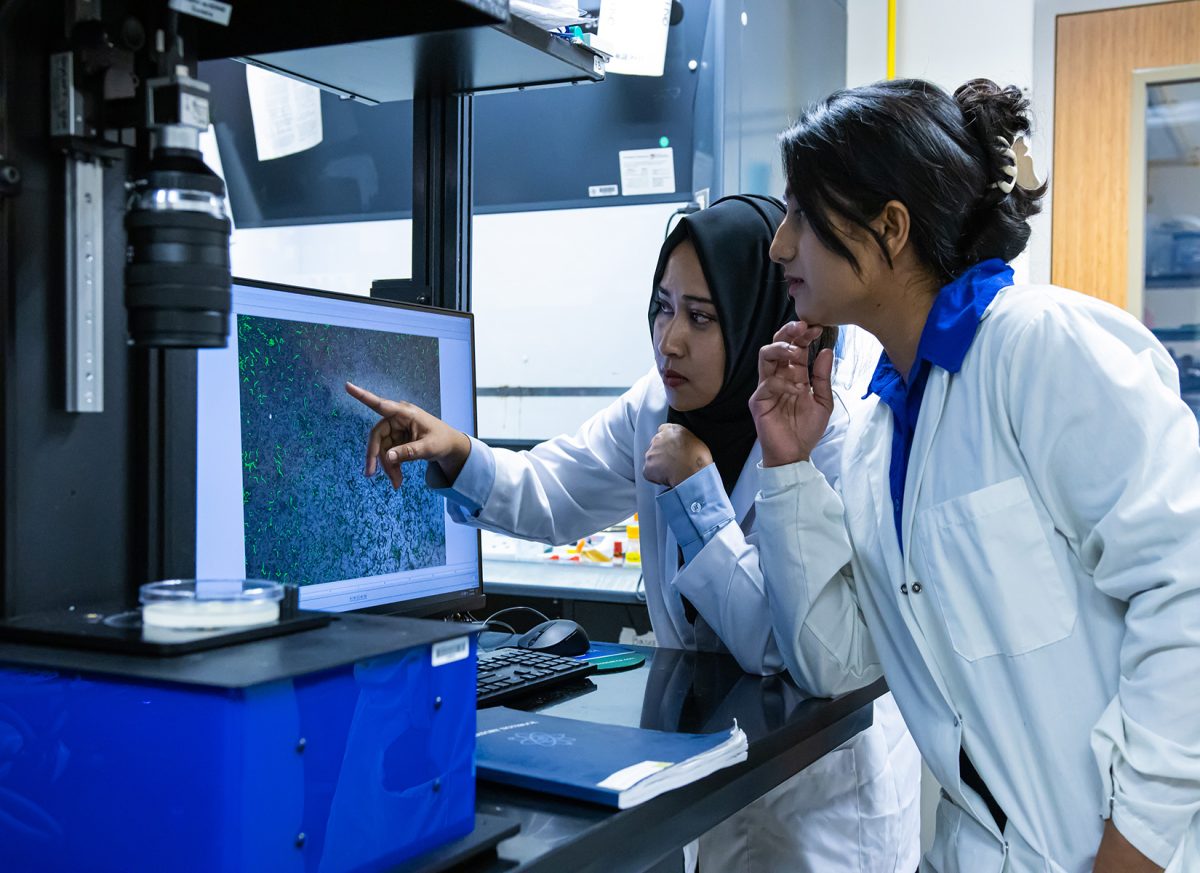A group of UTEP researchers have discovered nano plastics and polyfluoroalkyl substances (PFAS), also known as forever chemicals, in breast milk and formula.
This research study started when professor and chief of the Division of Biochemistry in UTEP’s Department of Chemistry and Biochemistry, Mahesh Narayan, Ph.D., presented projects to two students back when they were studying at UTEP.
The first project focused on nano plastics was led by Afroz Karim, while the second PFAS project was led by Anju Yadav. This set the foundation for the newest research study of nano plastics and how it affects the human body.
According to the UTEP newsfeed, nano plastics and PFAS are manmade forever chemicals that surround everything, this can include anything from clothes and water bottles to food that people consume.
Karim and Yadav started the project by focusing on modern proteins such as blood and milk proteins.
“Beta-lactoglobulin, a protein found in cow’s milk, and alpha-lactalbumin, present in human breast milk, are both used as model proteins in our study,” Karim said. “Our initial focus was on beta-lactoglobulin, as it is a component of cow’s milk, which we consume daily. Since milk is often packaged in plastic bottles, we aimed to investigate whether nano plastics influence the functionality of this milk protein and affect the nutritional value of the milk.”
The team of researchers selected by hierarchy in their major and field, moved on to testing alpha-lactalbumin found in breast and blood protein.
“What we do is we start with the senior graduate students, and we assign them a project and then the graduate students, for example, Karim or Anju would have an undergrad assisting them,” Narayan said.
The rest of the team includes; Randhal Ramirez Orozco, doctoral student of computational science; Sophia Borrego, sophomore biomedical sciences major; Samantha Arce, sophomore biomedical sciences major; Daisy Wilson, doctoral student of environmental science and engineering; Ummy Habiba Sweety, doctoral student of environmental science and engineering; and Jyotish Kumar, doctoral student in the Department of Chemistry and Biochemistry.
Lela Vukovic, Ph.D., associate professor in the Department of Chemistry and Biochemistry, was also involved in the research.
As nano plastics were discovered in both beta-lactoglobulin and alpha-lactalbumin, the research will continue by seeing how nano plastics and PFAS effect myoglobin, or blood proteins.
“That’s quite fascinating, for up until now, numerous studies have focused on the pollution caused by nano plastics and microplastics, along with their impact on the environment and marine organisms,” Karim said. “However, there is scant information regarding their effects on human health. Our aim was to find out the severity of this issue for humans. Microplastics have been detected in human blood, the placenta, and even the lungs, making it crucial to understand how these nano plastics affect our proteins and cells.”
With this new discovery, the team hopes that the research changes the trajectory of what people consume. This research leads into the effects of next generation plastics and PFAS and how their findings now impact and advance the field.
“Based on the findings by Karim and Anju, we can make four inferences, one is they impact proteins upstream before you present clinically with the pathology,” Narayan said. “Next, how do they impact protein. Third, we understand along the trajectory to pathology, what are the targets, and finally how they interact with these proteins will tell us how to design the next generation plastics and the next generation PFAS.”
Avery Escamilla-Wendell is a contributor and may be reached at [email protected] or on Instagram @by_avery_escamilla










